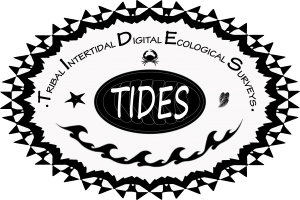OUR TEAM
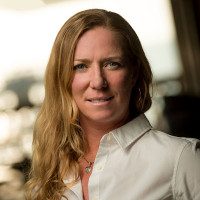
Jennifer E. Smith, Scripps Institution of Oceanography
Jen is a coral reef ecologist with primary expertise in benthic communities (marine plants, corals and other invertebrates). Her primary interests are in determining how various physical and biological processes affect the structure and function of marine communities. Jen has been interested in determining how human impacts affect or alter marine communities. Much of the research in the Smith lab is focused on marine conservation and restoration of degraded habitats and often involves multidisciplinary activities. Jen and her students are actively working to develop effective management strategies for marine environments around the world.
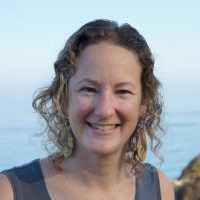
Sarah N. Giddings, Scripps Institution of Oceanography
Sarah is a coastal oceanographer specializing in estuarine and coastal process with an interest in interdisciplinary projects that address how physics impacts important biological and chemical processes in the coastal environment. She is working on the TIDES project helping to connect the physical forcing in terms of water levels (waves, tides, surges, etc.) to the observed biological shifts in intertidal zonation.
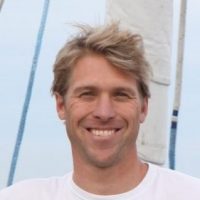
Clinton B. Edwards, Scripps Institution of Oceanography
Clinton is a community ecologist and has worked on large-area imaging projects since 2013, as part of the 100 Island Challenge, helping to develop field protocols and leading ecological post processing efforts. His PhD work investigates how natural history strategies shape spatial patterns and demographic responses to disturbance in sessile communities.
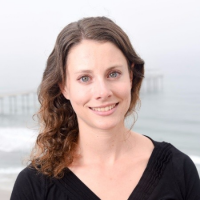
Kelsey A. Miller, Scripps Institution of Oceanography
Kelsey came to Scripps after seven years as executive director of Science Rendezvous, a Canadian non-profit dedicated to improving access to cutting edge science and technology for underserved communities. Kelsey helped to launch the TIDES project as part of her master's degree at SIO. She will now continue to work toward expanding the TIDES project as she pursues her PhD in Resource and Environmental management at Simon Fraser University in Vancouver, Canada.
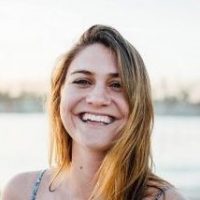
Isabella Doohan, Scripps Institution of Oceanography
Bella completed her MS at Scripps Institution of Oceanography in Jennifer Smith's lab where she used digital ecological surveys to study the rocky intertidal ecosystem. Bella attended UCSD where she was a volunteer in the Smith Lab while earning her BS in marine biology. In the years since graduating she has focused her career on conservation in the form of outreach and education. Bella is passionate about understanding local ecology in order to support conservation and education, which has led her to be a natural fit for the TIDES project.
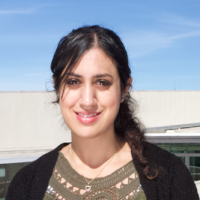
Adi Khen, Scripps Institution of Oceanography
Adi completed her PhD at Scripps Institution of Oceanography in Jennifer Smith's lab where she studied the long-term responses of coral reefs to global climate change. For her dissertation, Adi used a decade-long time series of imagery from Palmyra Atoll, Central Pacific, to monitor the abundance of corals, algae, and other benthic organisms. She is also knowledgeable about local Southern California seaweeds and has helped teach Phycology (Marine Plant Biology) at UCSD. Adi is passionate about using art to communicate science, and she makes digital illustrations of marine life in her spare time.
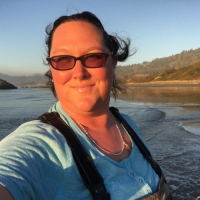
Rosa Laucci, Tolowa Dee-ni’ Nation
Rosa has a Master’s degree in Marine Biology from Nova Southeastern University and a Bachelor’s degree in Biology from California State University, Stanislaus. She has managed the Marine Program for the Tribe since its creation in October 2012 and has been instrumental in its development. Through her program, she has contributed important scientific data and research to developing a unique, culturally based Harvest Title, the first of its kind for the Tribe, and a Marine Plan. She has also been an integral part of Marine Protected Area (MPA) baseline monitoring since 2013, working on sandy beach, rocky intertidal and Traditional Ecological Knowledge projects. Her role in the TIDES project will be the lead for Tolowa Dee-ni’ Nation which includes, field coordination, data collection, analysis and reporting.

Jaytuk Steinruck, Tolowa Dee-ni’ Nation
Jaytuk has worked in the Tribe’s Marine Program for nearly six years and has played a major role in the program’s development. This includes baseline monitoring of sandy beach, rocky intertidal, and Traditional Ecological Knowledge; smelt habitat assessments; Biotoxin sampling; contributing to the Harvest Title; and providing cultural context for projects. Mr. Steinruck is a Tribal citizen with vast Traditional Ecological Knowledge of the ancestral territory and a customary user of natural resources. He is also the Chairperson for the Tribe’s Natural Resource & Harvesting Committee and sits on the Tribe’s Culture Committee, both being integral in providing expertise and advice on natural and cultural resources. He is a valuable asset to the Marine Program, the Natural Resources Department and to the Tribe. He is frequently called upon for his expertise in Tribal culture and resources, not only by those in Natural Resources, but from other departments and local community members. He is responsible for keeping cultural traditions alive in his household and community by continuing to speak Dee-ni’ Wee-ya’, participates in ceremonies and continuing the annual tradition of fish camp every summer. His role in the TIDES project will primarily be field coordination, data collection, analysis, and equipment maintenance.

